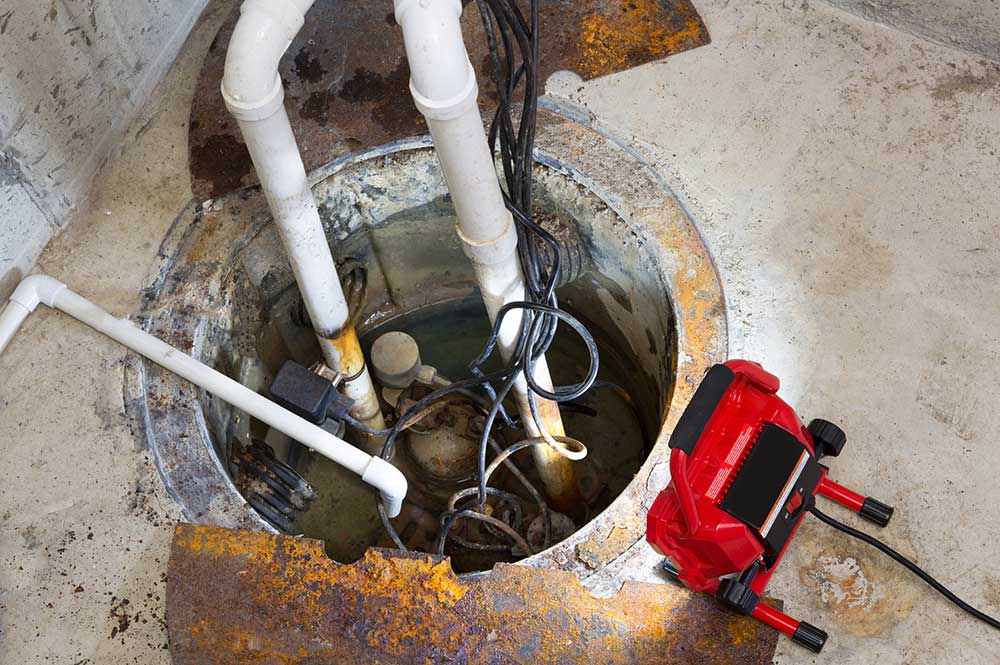Seamless Well Pump Replacement: Recovering Your Water System with Precision
Seamless Well Pump Replacement: Recovering Your Water System with Precision
Blog Article
Recognizing the Secret Parts of Effective Water Purification Systems

Significance of Water Filtering Equipment
Water filtration systems play a vital duty in ensuring access to tidy and safe alcohol consumption water by efficiently removing pollutants and impurities. These systems are vital in addressing the growing issues over water top quality and the potential health and wellness risks associated with taking in contaminated water. By making use of various purification mechanisms such as reverse osmosis, activated carbon, and UV sterilization, water purification systems can successfully get rid of harmful compounds like germs, infections, heavy steels, and chemicals from the water.
Moreover, water purification systems assist to enhance the preference and smell of water by removing chlorine, debris, and various other toxins that can impact its quality. Water Filtration Systems. This improvement in water quality not just makes it much more palatable yet also encourages individuals to drink an ample amount of water daily, promoting far better hydration and total health
Types of Purification Elements

Physical filters are made to physically stress out impurities from the water. These filters can be made from products like ceramic, carbon, and even sand, and they work by capturing bits larger than the filter's pores as water travels through.
Chemical filters utilize different chemical procedures to get rid of impurities from the water. Examples include triggered carbon filters, which adsorb contaminations, and reverse osmosis membranes, which make use of pressure to different pollutants from the water.
Organic filters make use of living microorganisms like algae or microorganisms to break down organic issue and pollutants in the water. These filters are typically utilized in wastewater therapy plants or natural water filtration systems.
Recognizing the different sorts of purification parts is critical for picking one of the most ideal water filtering system for details purification demands.
Feature of Sediment Filters
Debris filters play an essential duty in water purification systems by successfully capturing solid bits put on hold in the water. These filters are generally the first my website line of defense in a filtering system, eliminating bigger fragments such as sand, silt, dirt, and corrosion prior to the water relocates through finer purification phases. By trapping these sediments, the filters prevent them from getting to downstream elements, therefore extending the life-span and performance of the entire system.
The function of sediment filters is essential in keeping water high quality and shielding sensitive tools from damages brought on by particles. Furthermore, by removing visible fragments, debris filters improve the clarity and taste of the water. Routinely replacing or cleaning up debris filters is vital to make certain optimal performance. Ignoring this upkeep can cause clogging, reduced water circulation, and compromised purification performance. On the whole, sediment filters are indispensable parts that contribute considerably to the performance of water filtration systems.
Function of Turned On Carbon Filters
Playing an important duty in water filtering systems, turned on carbon filters are important in eliminating contaminations and pollutants from the water supply. These filters are created to adsorb and trap a variety of toxins, consisting of chlorine, unstable organic compounds (VOCs), chemicals, and herbicides. The turned on carbon material has a large surface area, enabling the reliable trapping of contaminants through a procedure called adsorption. As water travels through the filter, the turned on carbon holds and brings in onto the pollutants, making certain that the water that comes out beyond is cleaner and more secure for intake.
Turned on carbon filters are extremely effective at boosting the preference and smell of water by lowering chemicals that can influence its quality. Due to their adaptability and reliability, triggered carbon filters are an essential part in making sure that water is detoxified to the highest standards before getting to customers.
Recognizing Reverse Osmosis Equipments
Reverse osmosis systems are innovative water filtering systems that utilize an innovative procedure to remove impurities and impurities from alcohol consumption water. These systems function by applying pressure to the water, requiring it through a semi-permeable membrane layer.
One secret advantage of reverse osmosis systems is their ability to eliminate a wide variety of impurities, consisting of heavy metals, liquified bacteria, infections, next page and solids. This makes them extremely reliable in enhancing the overall quality and security of drinking water. Additionally, reverse osmosis systems are relatively low-maintenance find here and can be installed under the sink or in a main purification system, offering hassle-free access to tidy water throughout the household. Generally, understanding how reverse osmosis systems function can assist individuals make notified decisions about their water filtering demands.
Final Thought
In final thought, reliable water filtering systems are crucial for guaranteeing tidy and risk-free alcohol consumption water. By understanding the function and duty of each element, individuals can make informed decisions when choosing a water purification system.
Water filtering systems play an essential function in guaranteeing accessibility to clean and secure drinking water by properly eliminating pollutants and impurities. By utilizing numerous purification devices such as reverse osmosis, activated carbon, and UV sterilization, water filtration systems can successfully remove dangerous materials like germs, infections, heavy metals, and chemicals from the water supply.
Debris filters play a critical role in water purification systems by successfully recording strong fragments suspended in the water (Water Filtration Systems).Playing an important duty in water filtering systems, turned on carbon filters are important in eliminating contaminations and pollutants from the water supply.Reverse osmosis systems are sophisticated water filtration systems that use a sophisticated procedure to eliminate contaminants and impurities from drinking water
Report this page